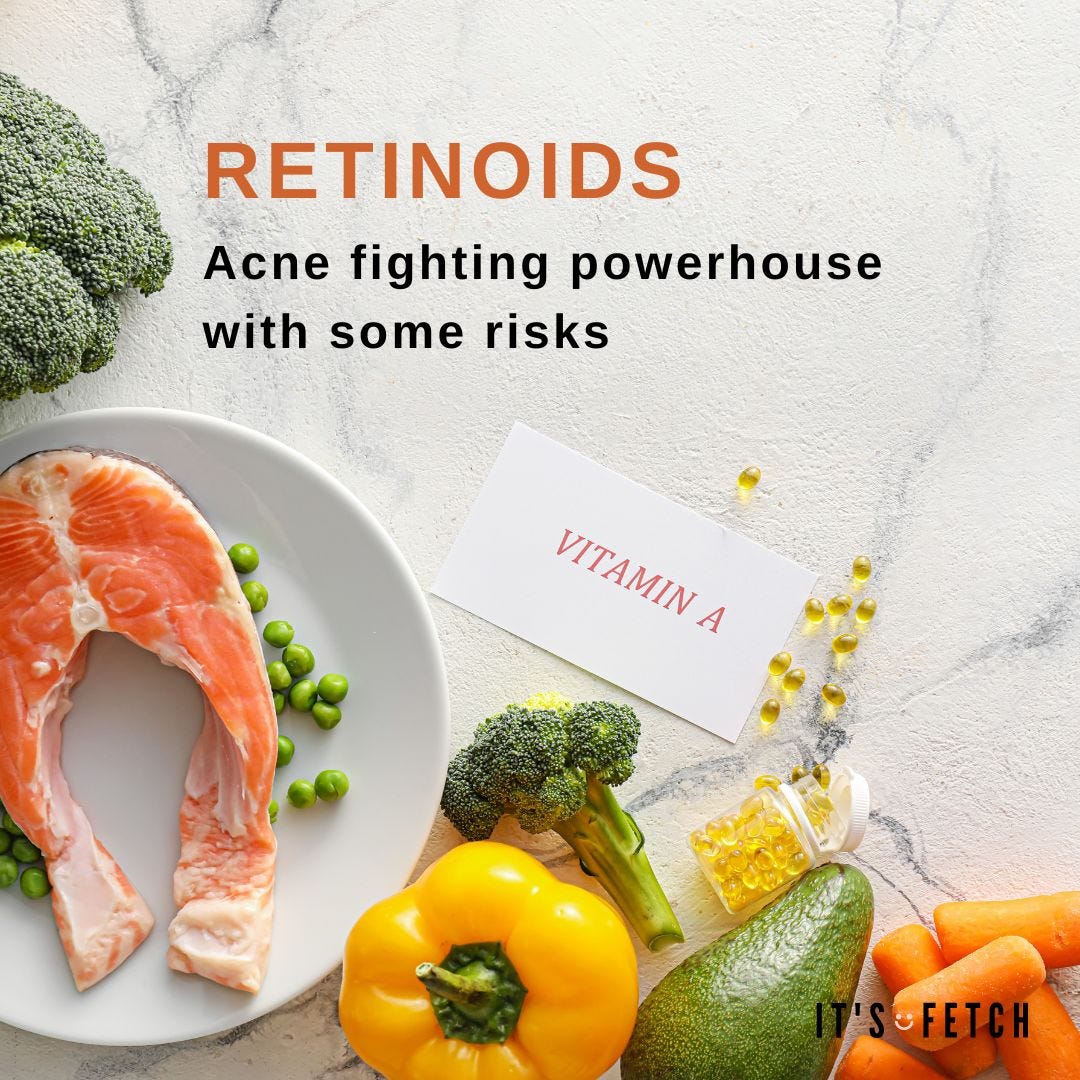Retinoid
/ˈretnˌoid/
group of compounds having effects in the body like those of vitamin A (Oxford Languages)
…
What is Retinoid?
Retinoid is a class of vitamin A derived medication that is commonly used to treat skin conditions such as acne, psoriasis, and skin aging (AOCD,n.d.). The science behind retinoids is complex, but to put it simply, retinoids help stimulate collagen production, improve skin elasticity and firmness, unclog blocked pores, and protect the skin from UV damage ( Zasada & Budzisz, 2019; AOCD). These factors make retinoids effective treatment options for hyperpigmentation, or dark patches on the skin, and wrinkles. Topical retinoids prescriptions are commonly available in .025%, .05% and .1% concentrations; however, lower dose alternatives, such as retinol, can be purchased over the counter.
Risks and Side Effects
According to Mayo Clinic, topical retinoid products commonly cause burning, stinging, peeling, redness, or severe dryness of the skin. Retinoids also have a tendency to make the skin more sensitive to the sun so if you plan on using retinoids, apply the product at night, use sun protection during the day, and apply sunscreen (AADA, 2021)
Retinoids are a teratogenic product, meaning it causes developmental malformations of the embryo or fetus. Doctors recommend that people who are pregnant or trying to get pregnant stop using oral retinoid products (isotretinoin). The risk of using topic retinoid products such as tretinoin is low, but unclear at this time (Bozzo et al., 2011). If you have questions or concerns, please speak with your healthcare provider.
Other Vitamin A derived products
Retinol: OTC product used to treat acne, hyperpigmentation, and wrinkles
Tretinoin: prescription retinoid used to treat acne, hyperpigmentation, and wrinkles
Adapalene: prescription retinoid used to treat acne
Tazarotene: prescription retinoid used to treat acne and psoriasis
—Written by Sabrina Park (MPH Candidate USC). Reviewed by Adriana Bakhoum MPH





